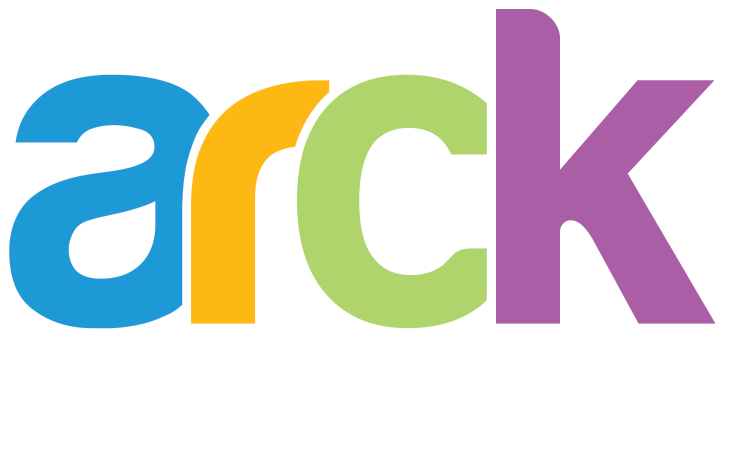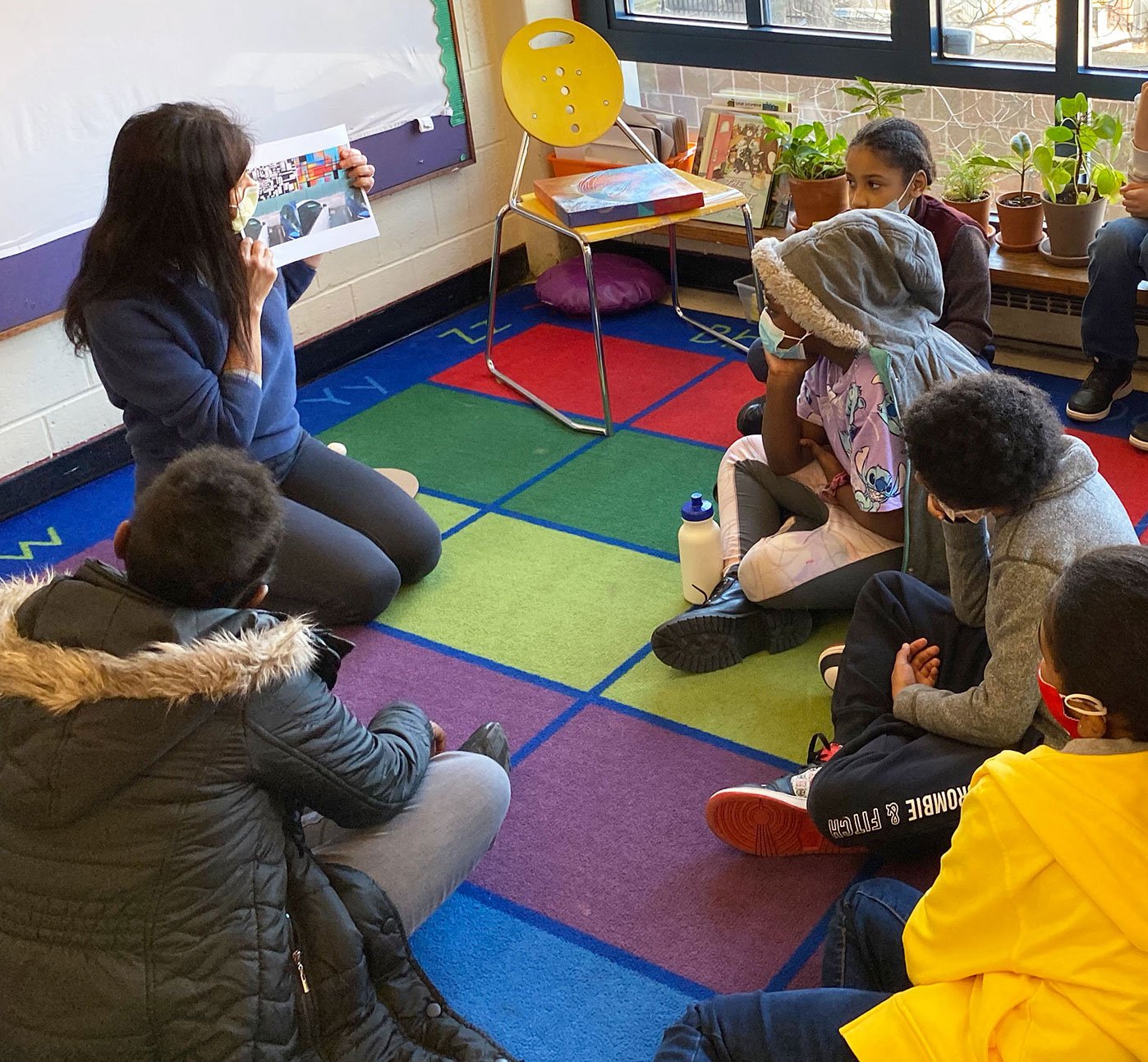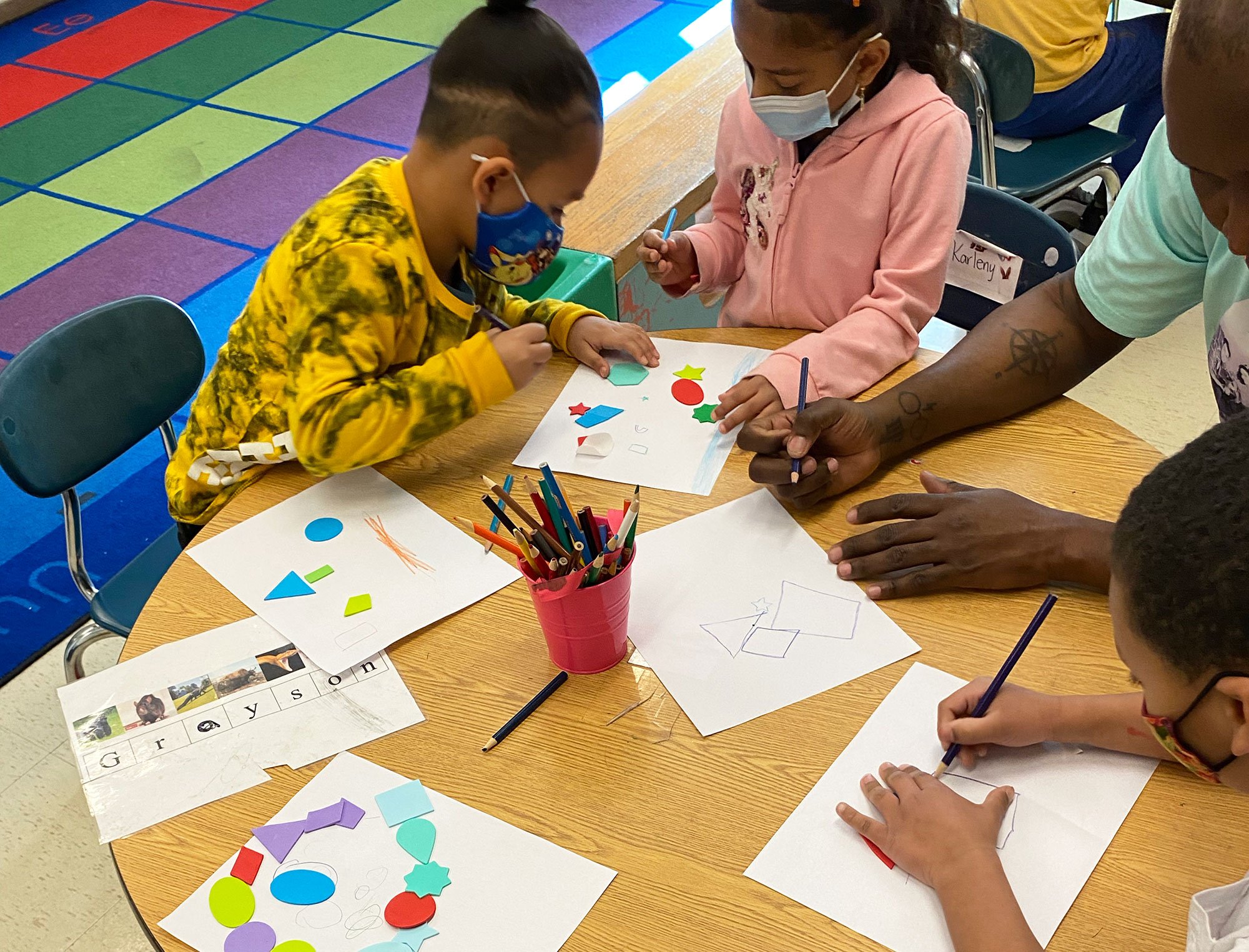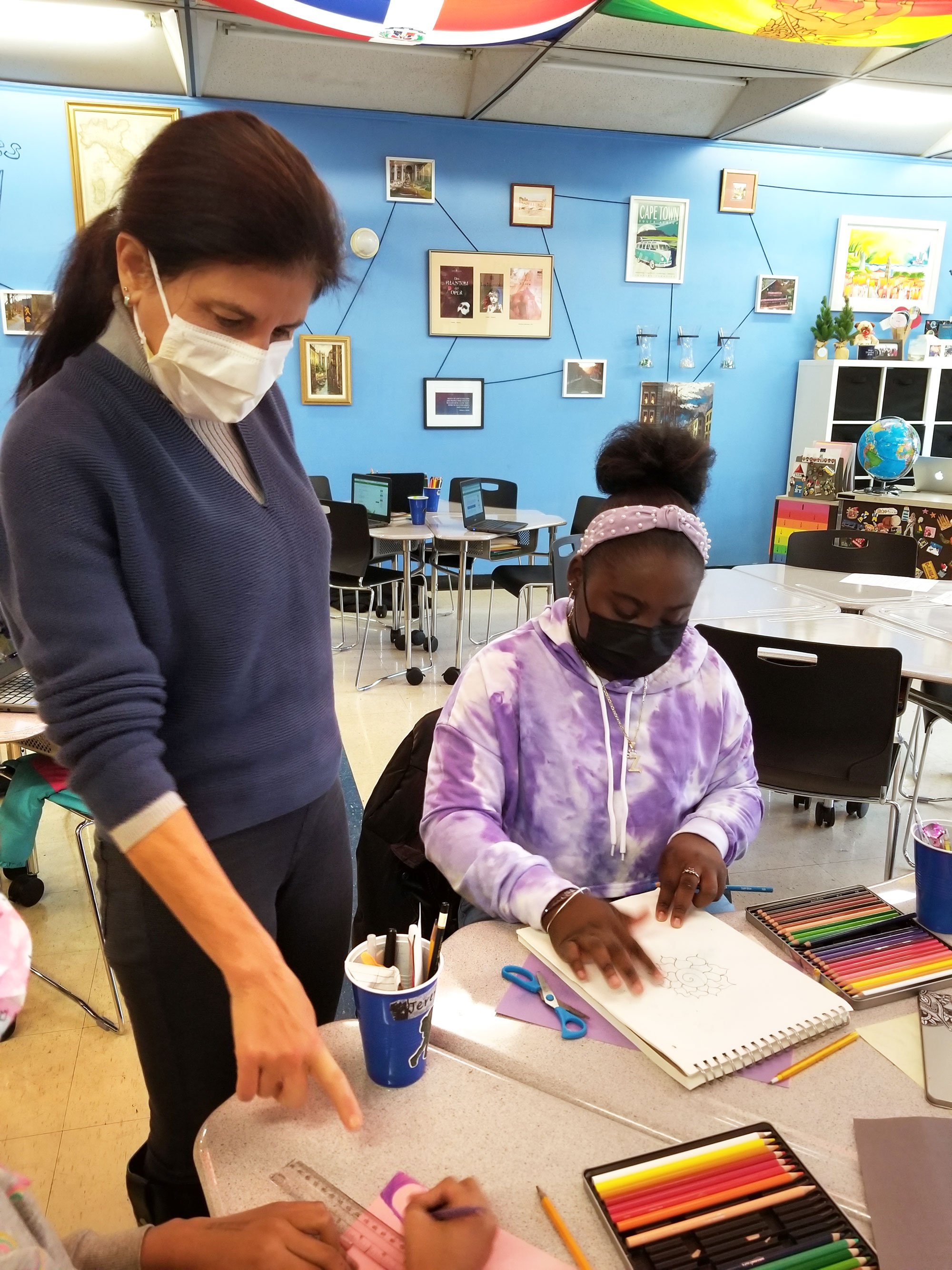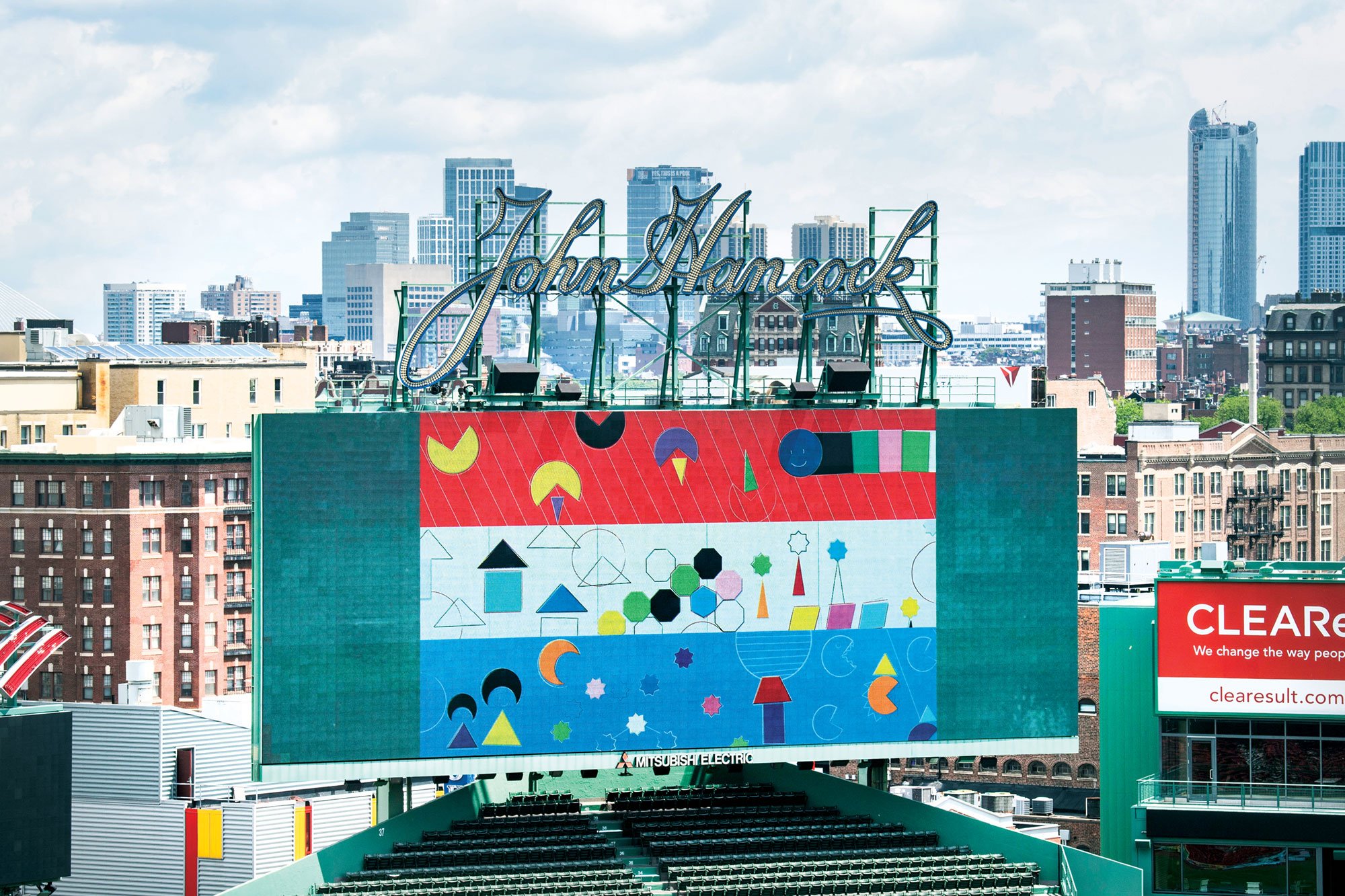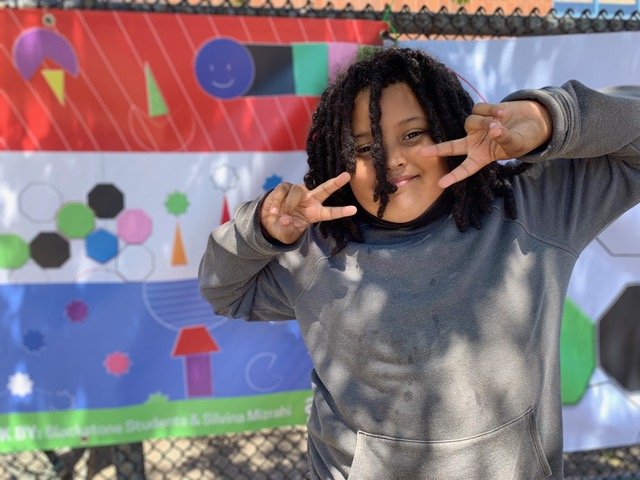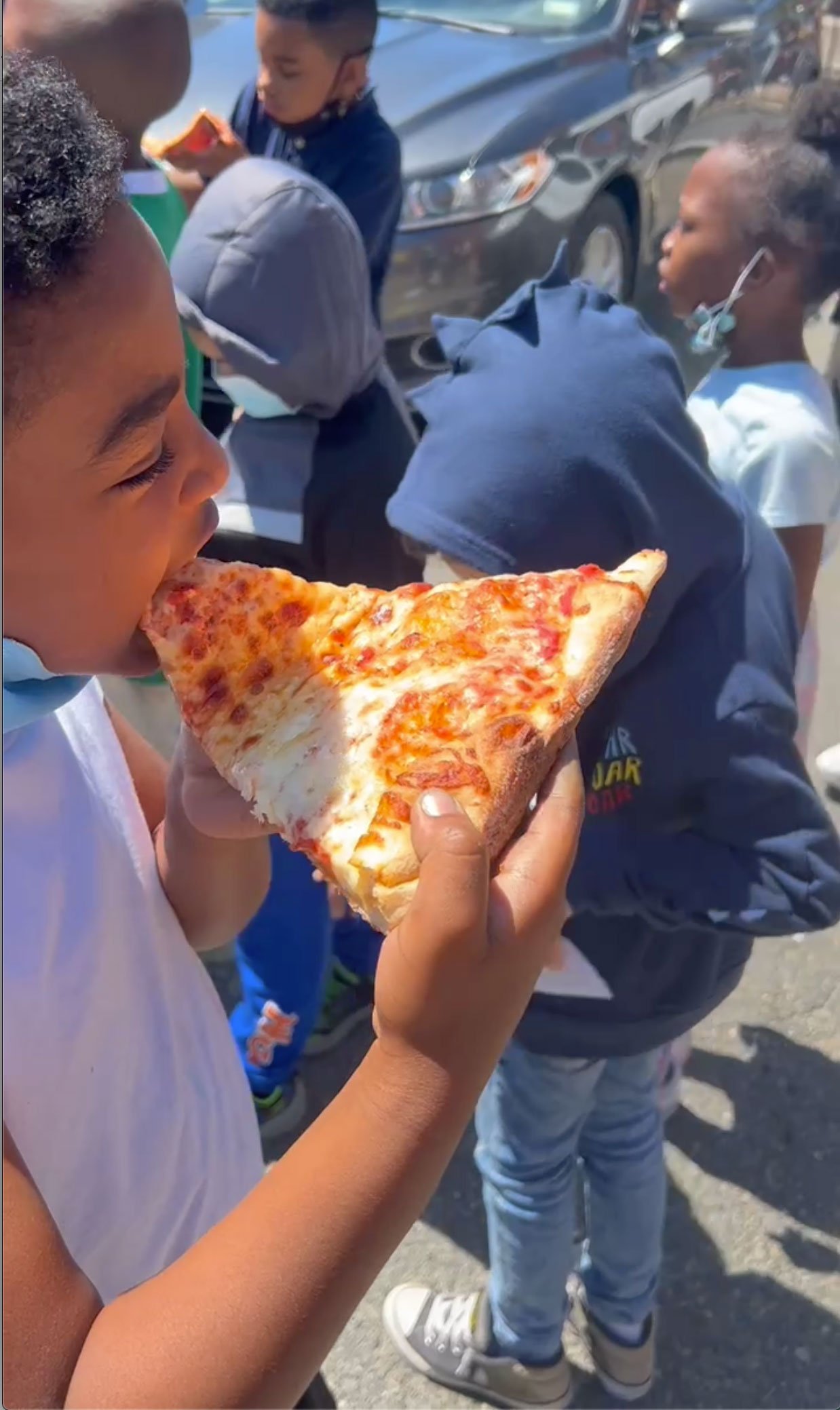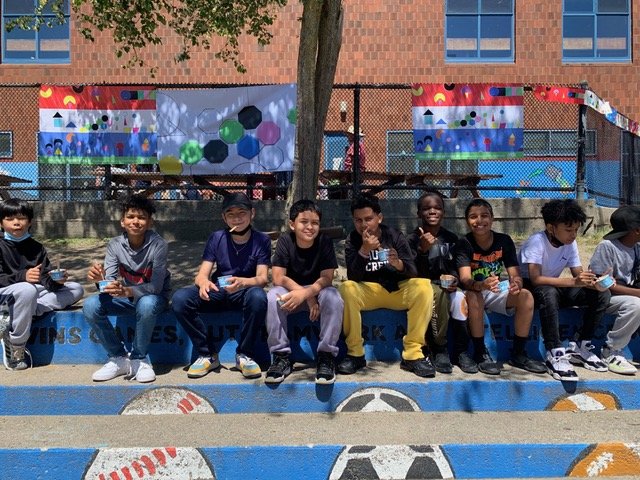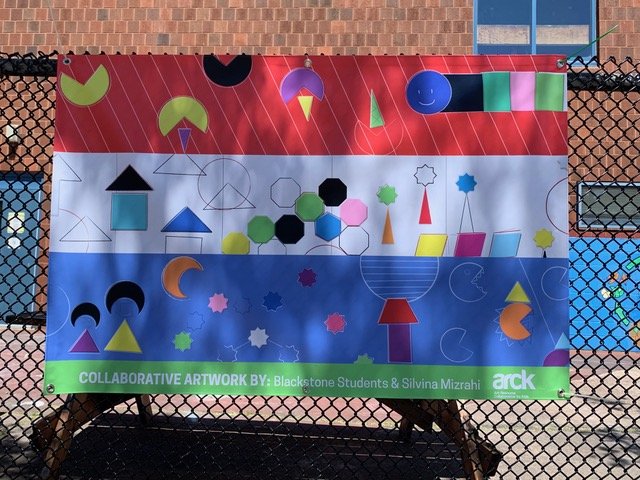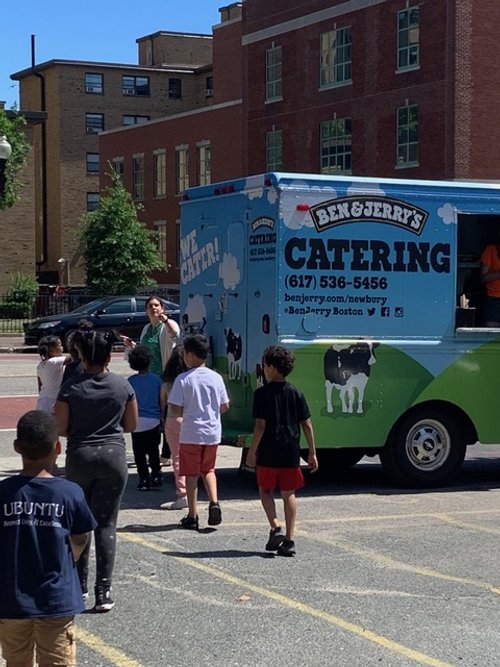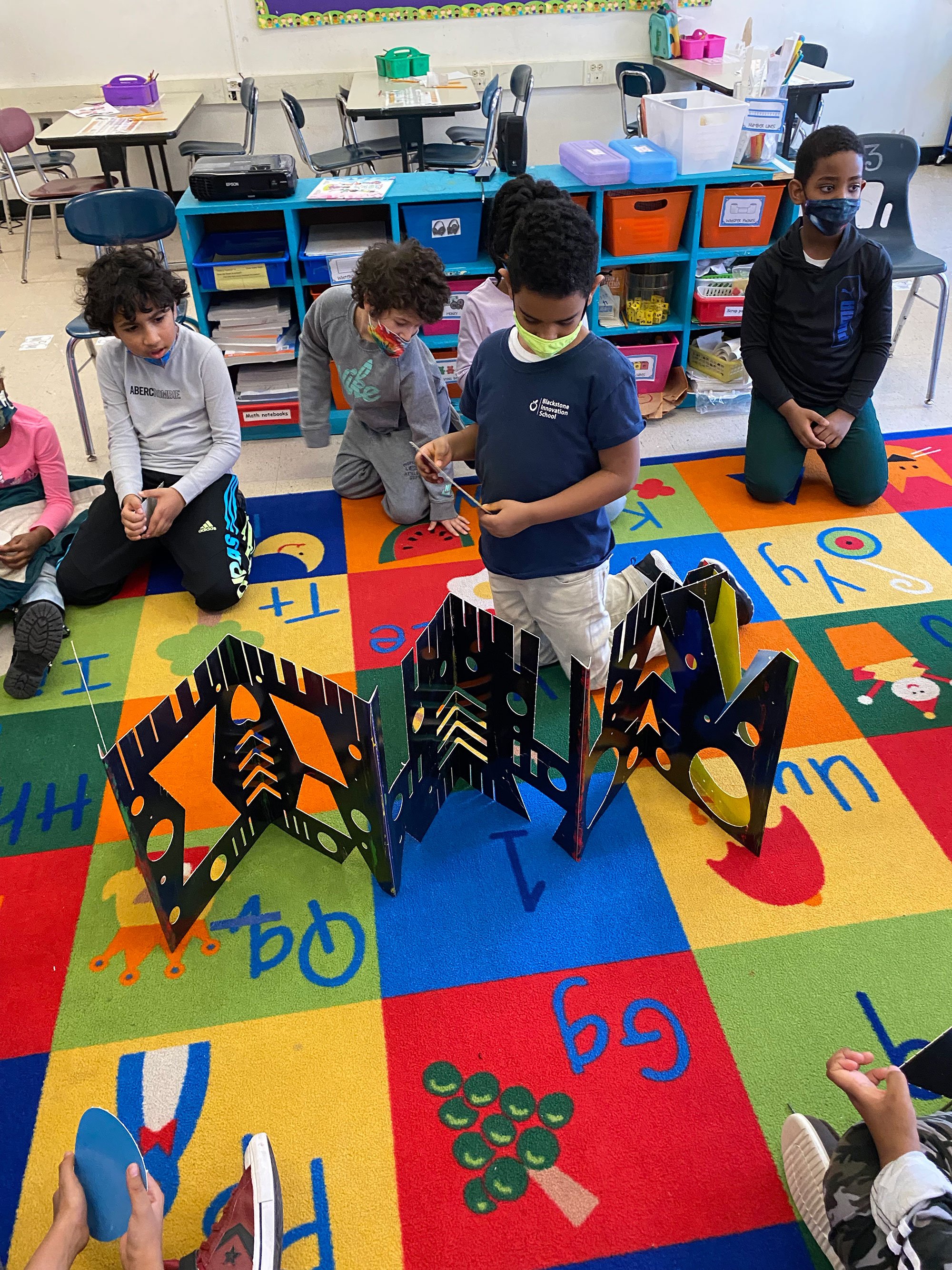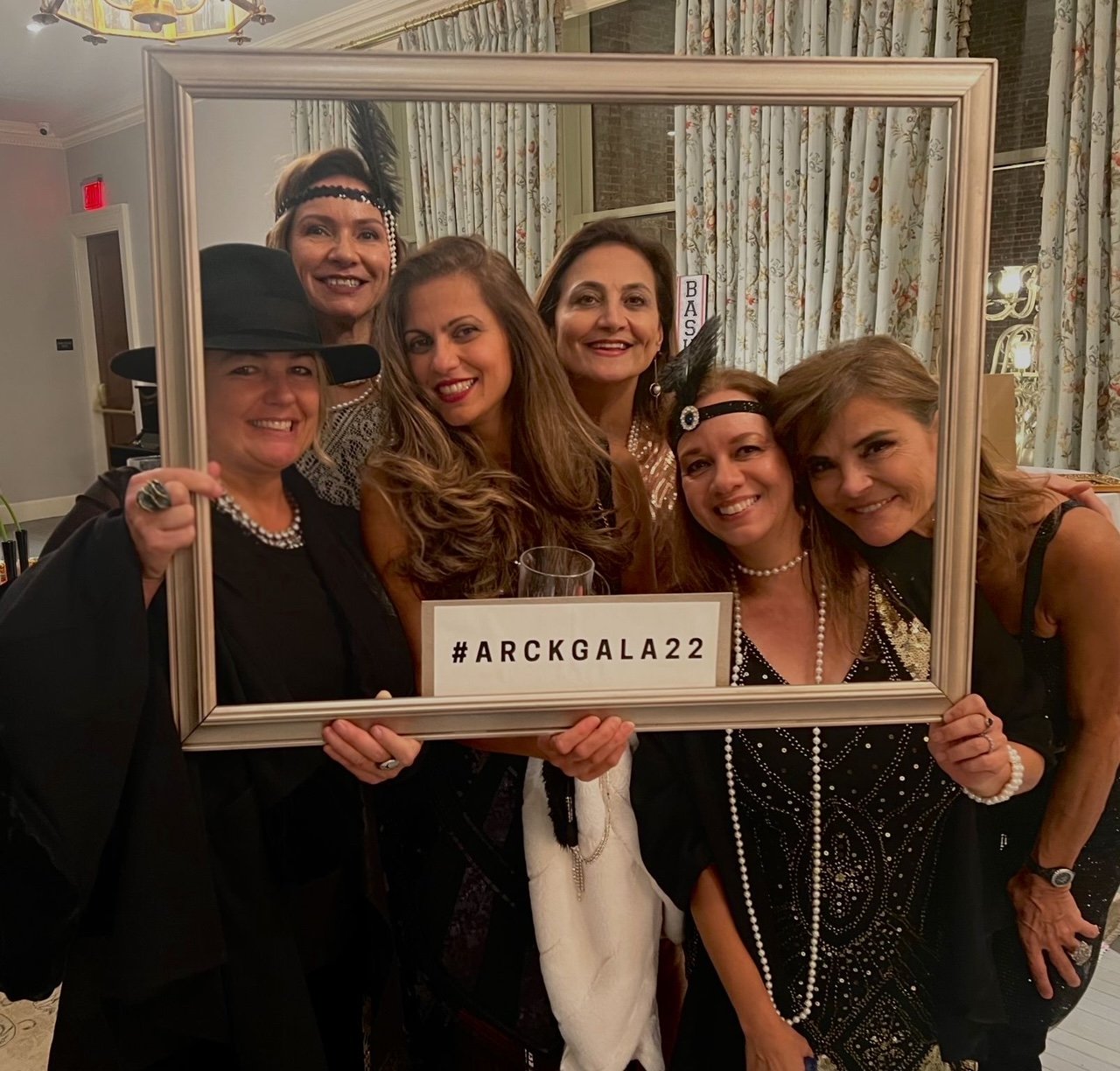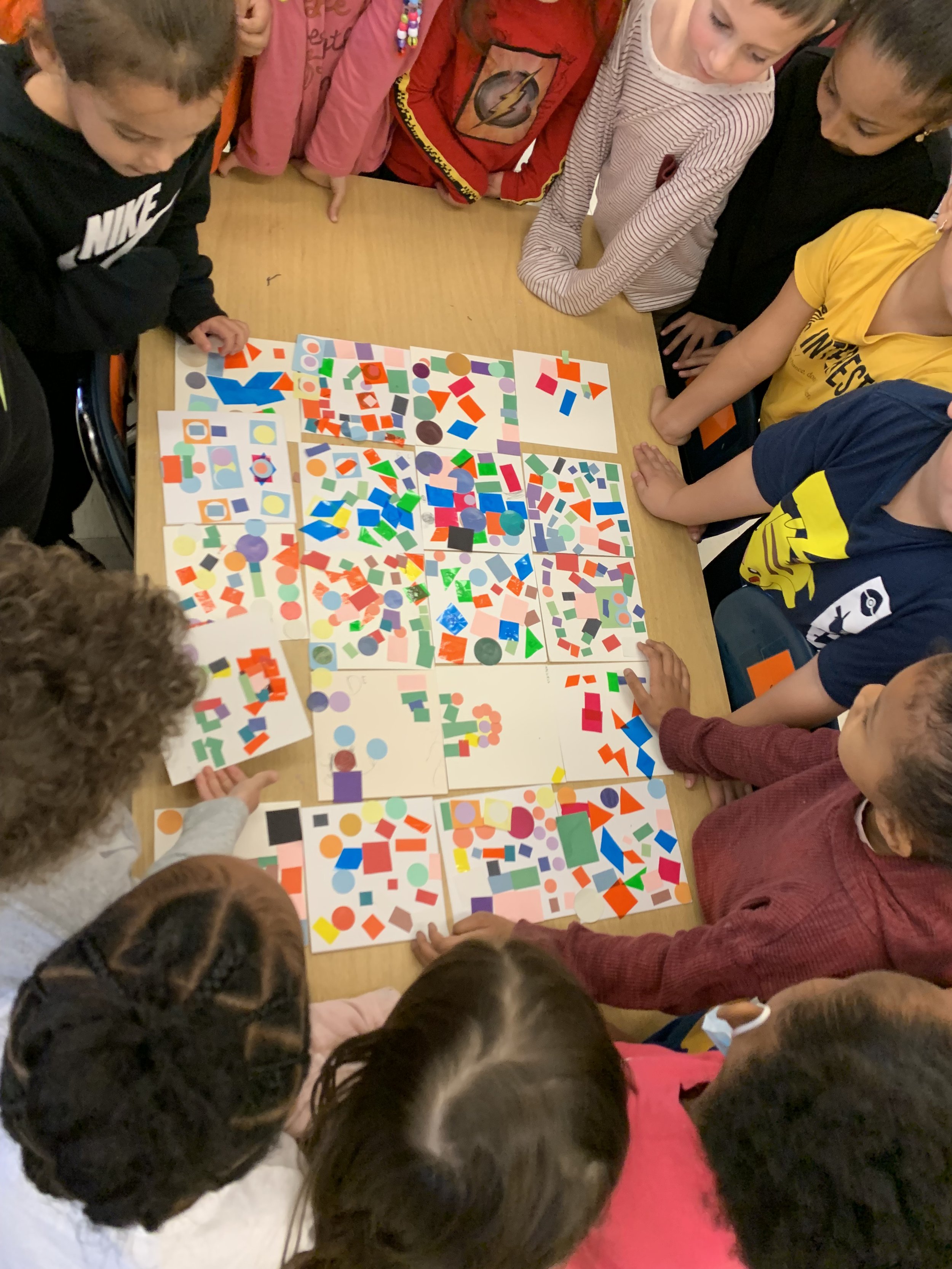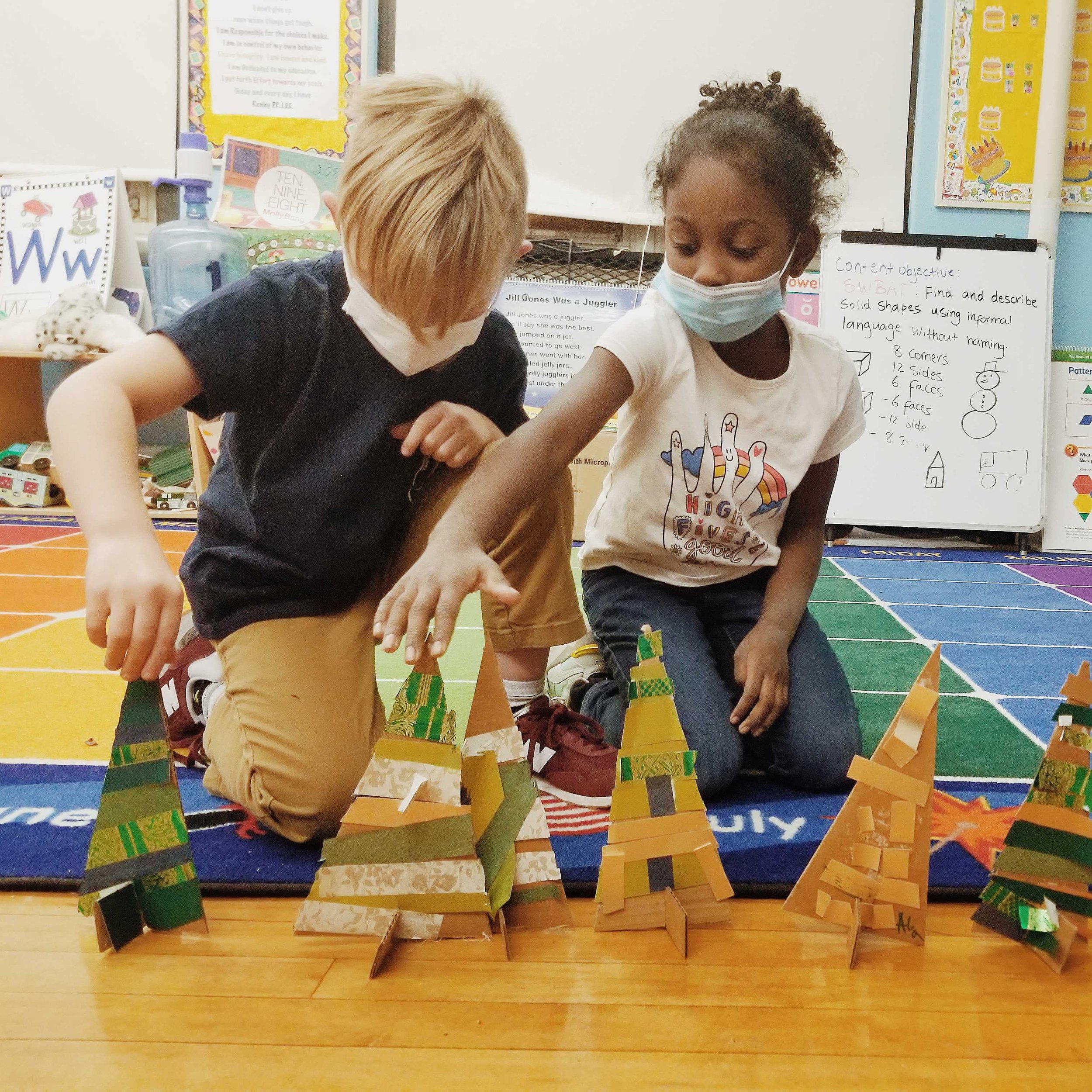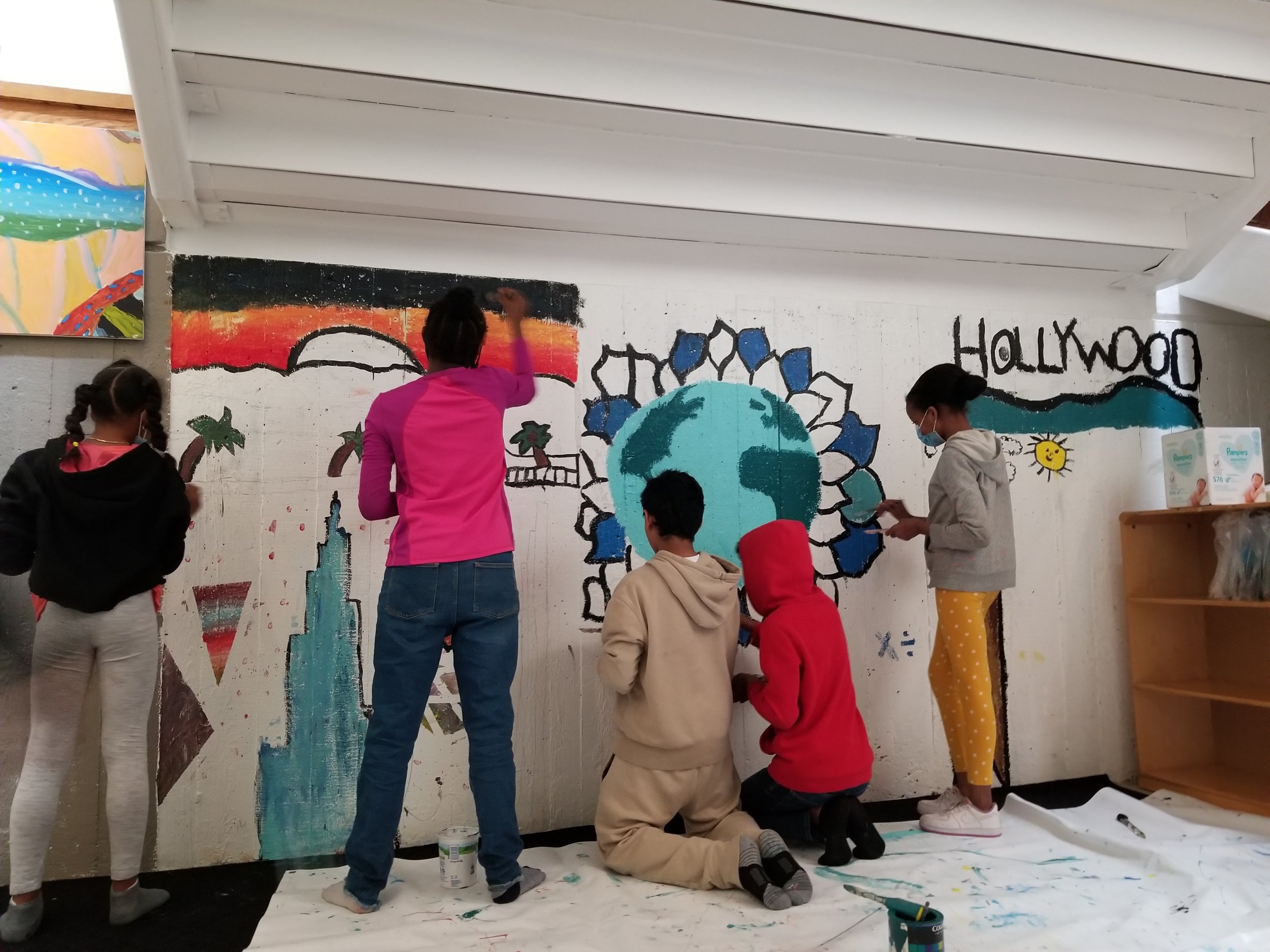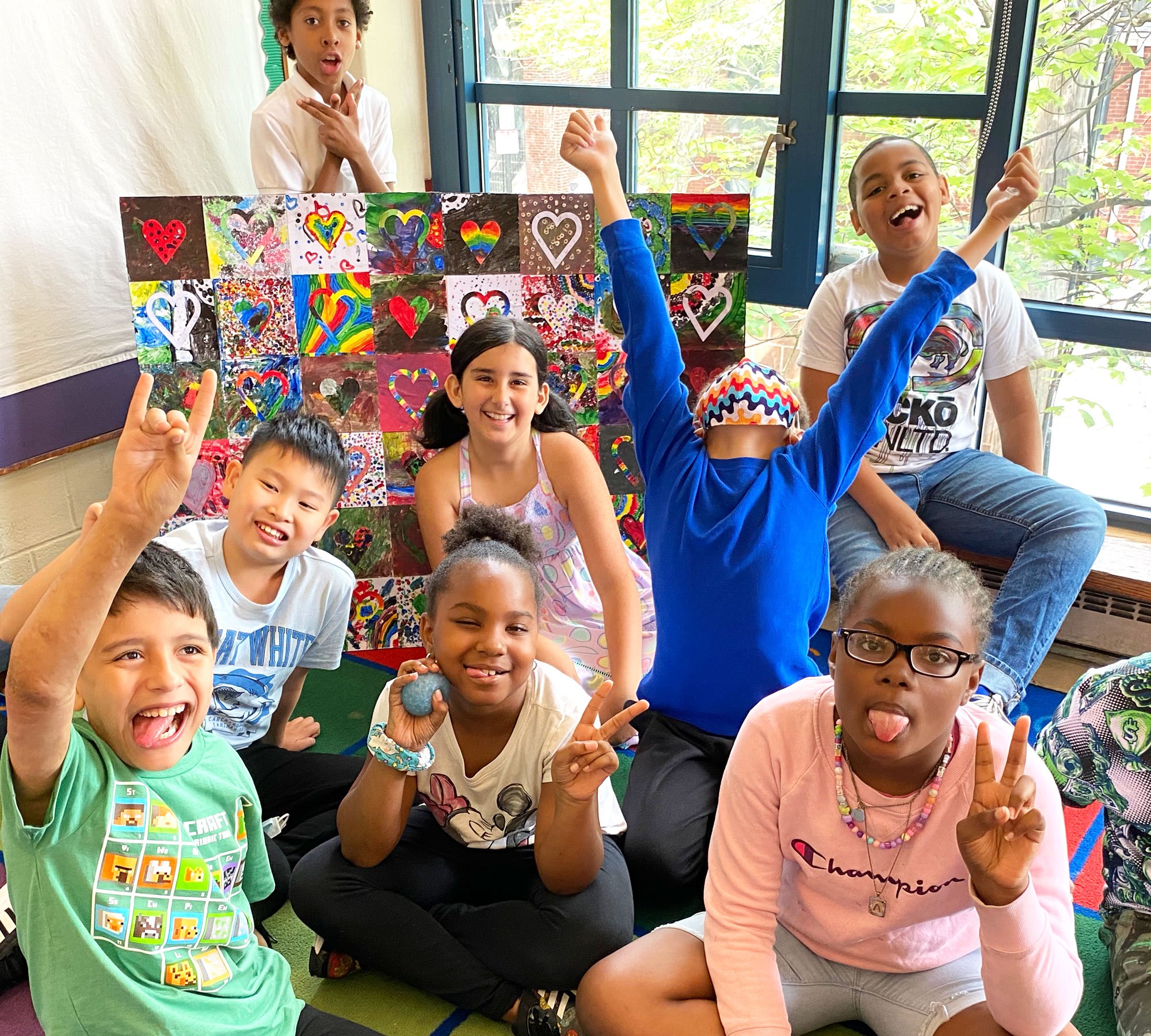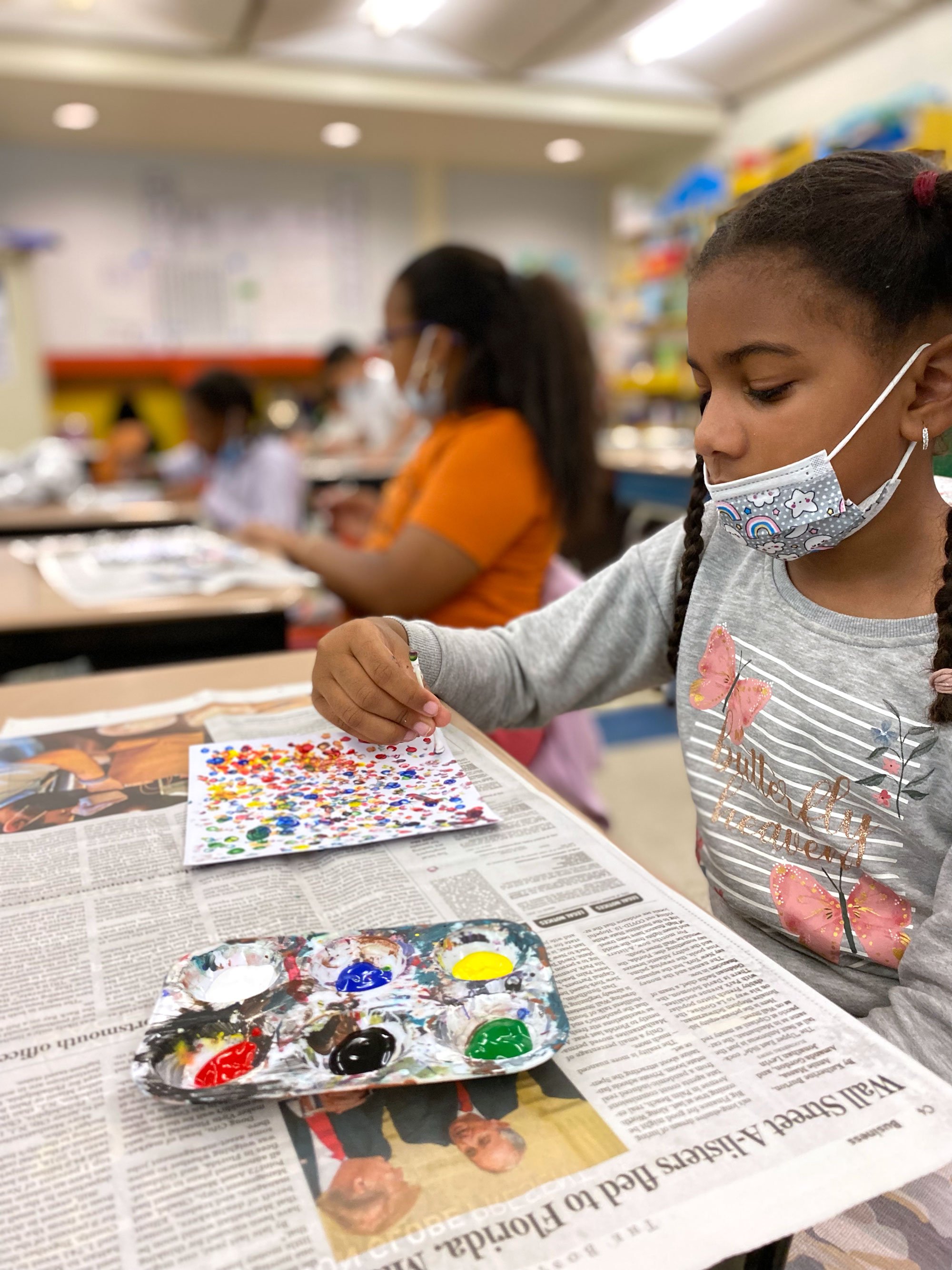There is perhaps no building more central to Boston’s identity than Fenway Park. Home to the Boston Red Sox since 1912, Fenway is a cultural landmark in the city and a vastly popular destination for tourists and residents alike. Visit any travel website and you’ll find Fenway as one of the top tourist destinations in the city, and more than 2.6 million people attended Red Sox home games in the 2022 season alone. Fenway is practically synonymous with Boston itself, and, understandably, it holds a deep significance to the city’s residents. The importance of Fenway to the Boston community cannot be overstated, and each year, ARCK partners with the Red Sox to provide students with the incredible opportunity to display their artwork at Fenway through our annual Miles of Murals event.
A part of our Building Bridges program, Miles of Murals connects young people and their communities through equity-based public art projects. This year, we will be adding to our previous Miles of Murals installations with a mural unveiling on a building across the street from Fenway Park on May 19th. In the weeks prior to the event, ARCK students at Gardner Pilot Academy will work with BIPOC artist Sandra Tomb and ARCK Teaching Artist Ny Wallace, to design and present public artwork culminating with the unveiling of the mural entitled “Together Through Art.”
While the opportunity to display artwork at Fenway would be exciting to any student, it holds a particular significance to ARCK’s young learners. Of the 700+ students ARCK serves annually, 91% are people of color, 89% are high-needs, and 79% are economically disadvantaged. Our students come from communities impacted by the stronghold of systemic inequities, and unfortunately, they are not often represented in the public works in and around the city. As such, Miles of Murals provides an important opportunity for the voices of BIPOC youth to be amplified in the greater Boston community. It also represents one of the core facets of ARCK’s Creativity Catalyst curriculum: Culturally & Globally Responsive Teaching (CGRT).
In order to meet the needs of our diverse learners, ARCK’s Creativity Catalyst curriculum is centered around three teaching values: CGRT, Universal Design for Learning (UDL), and Trauma Informed Practices (TIP). These practices seek to ensure that our students have access to a curriculum that is responsive to their needs as we work to dismantle the barriers that under-resourced students of color face in the traditional classroom. Prior to COVID-19, Black and Brown Boston Public Schools (BPS) students demonstrated significant gaps in testing performance relative to their white peers. These gaps were only exacerbated during the pandemic; BPS students, the majority of whom are BIPOC, suffered disproportionate academic losses relative to the average student in Massachusetts. This unfinished learning affects students well beyond the classroom, leading to significant decreases in lifetime earnings according to various reports. In order to disrupt the systemic racism that is pervasive in public education, we must rethink the way we approach educating BIPOC students, and CGRT is key to this work.
ARCK’s CGRT aligns with Culturally and Linguistically Sustaining Practices (C.L.S.P.), a recent effort in education to draw upon students’ cultural knowledge and experiences to facilitate academic learning. As former BPS assistant superintendent, Dr. Colin Rose and colleague Dr. Hayden Frederick-Clarke explain:
Culturally and Linguistically Sustaining Practices (C.L.S.P.) draw upon, infuse and evoke students’ existing schema, experiences, funds of knowledge, and perspectives to optimally facilitate learning. C.L.S.P. also intentionally seek racial and cultural equity and pluralism in order to deliberately tailor district-wide norms, policies and practices to affirm the identities of and expand opportunities for historically marginalized students. C.L.S.P. heavily relies upon the scholarship and research of its preceding models, namely culturally relevant, culturally responsive and culturally sustaining pedagogies.
Miles of Murals exemplifies the use of CGRT in ARCK’s teaching practices. In a previous iteration of the event entitled “Walls that Speak,” 8th graders from two BPS schools worked together to produce a mural that was unveiled by Dr. Chang, former BPS superintendent. This project was integrated into their humanity classes as they learned about autobiographies and symbolism, and the mural was painted in response to students’ writing and depicted the daily struggles of living with racism. By framing the lessons around the students’ cultural backgrounds, teachers gave students an opportunity to more authentically connect with the material, ultimately enhancing the learning experience. One student, for example, read her autobiography aloud at the unveiling, detailing the account of her mother who left one morning and never returned, only to learn later that she had been deported.
These types of projects help students reckon with community and personal histories, helping them heal from and process past trauma. Just as importantly, they deepen students’ academic learning as lessons are based on the students’ lived experiences. CGRT is crucial to addressing the opportunity gaps present between Black and Brown students and their white peers, and ARCK’s innovative curriculum places these practices at the forefront, helping teachers better serve students in each and every lesson.
By Olivia Player
